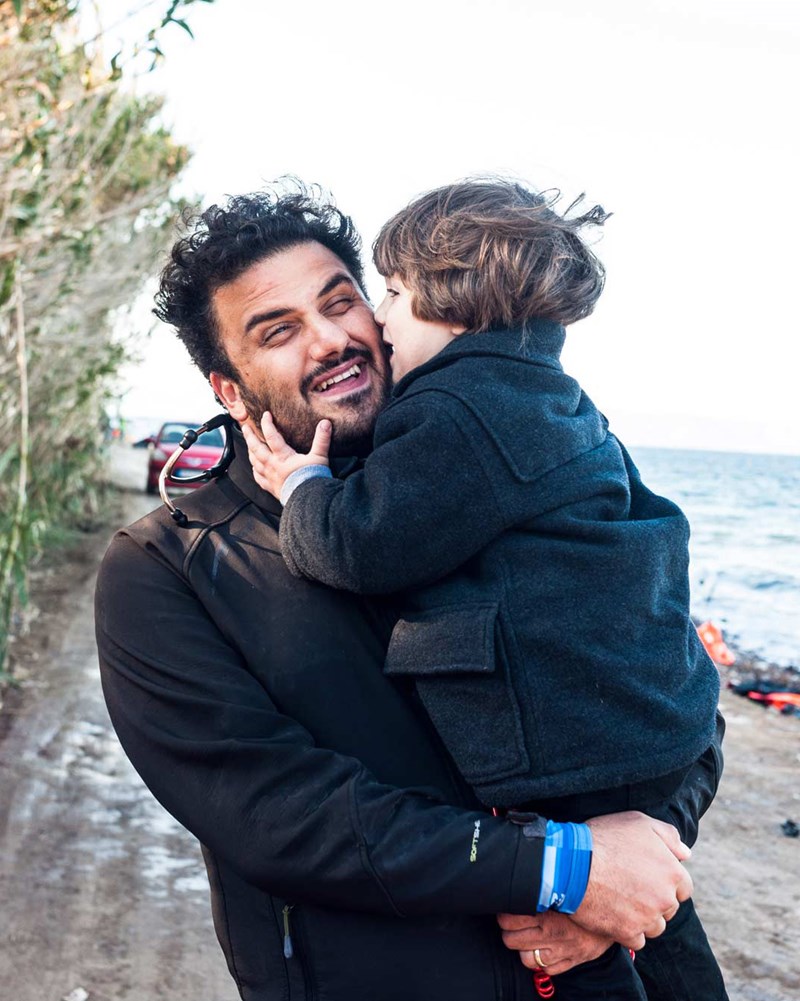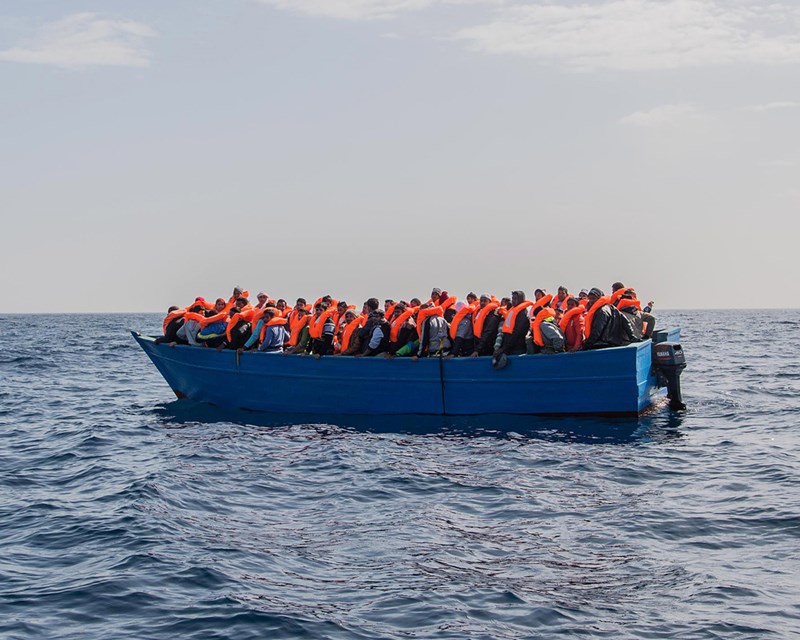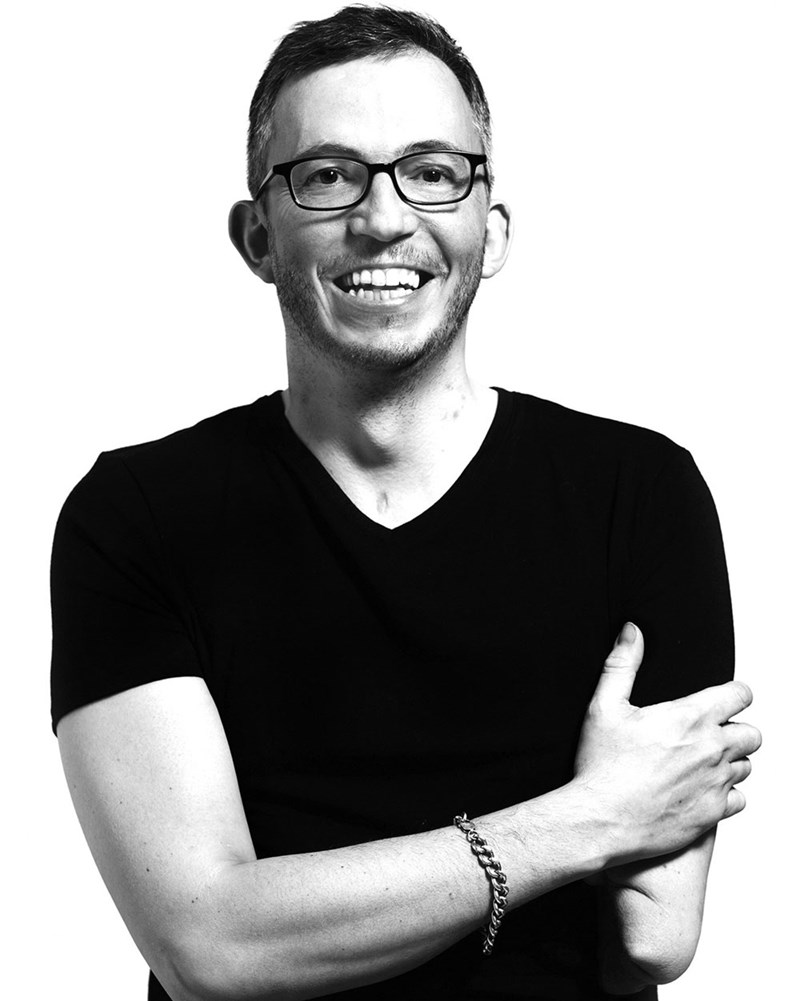‘Humanitarian aid is never just a job’
Every disaster response leaves a mark on me. Getting aid into Yemen and Syria; the Indonesia tsunami where the scale of the disaster was so inconceivable, I can still picture it now; or Typhoon Haiyan in the Philippines in 2013, where we worked for five days without sleep, coordinating back-to-back flights.
It’s also where, days after the rush, I received a missed call on my mobile from an unknown number. Calling back, I expected to find someone from our office, but instead found a person who had received a hygiene kit with my phone number on the side. It had been listed there in case of a problem. But he had called me to say thank you.
It’s important to know that humanitarian aid is never just a job. We are directly responsible for other people’s lives, often in make-or-break situations. If we fail to get fresh drinking water, medicine or food to people as quickly as needed, they could die. That’s something that is always in the back of my mind.
My introduction to the sector came in 2004, when I was 26 and had just arrived in Dubai. The logistics firm I worked for had been contracted to deliver relief supplies across Indonesia in the wake of the tsunami, and it was not an easy task. Communication lines had been cut, thousands of people were without food, water and medicine, and I had to oversee the transport of 50 containers out of Dubai within three days.
Very quickly, I knew this was a career I wanted to pursue. So I joined DHL in 2010, and when the company opened its global humanitarian logistics centre in Dubai in 2019, I was put in charge.
I call our Dubai office the ‘control tower’ for our global operations. From here, we work with UN agencies, NGOs, governments and private firms, as well as manage our own logistics centre and emergency stockpiles. When one of these organisations needs emergency supplies delivered, we’re contracted to do it.
We also support with other aid logistics such as last-mile delivery. In the Democratic Republic of Congo, for example, we transport medicines for the treatment of neglected tropical diseases to 20 locations across the country. It’s a challenging job done mostly by road, as there aren’t many domestic flights.
“We are directly responsible for other people’s lives, often in make-or-break situations.”

UNITED FRONT
When disasters strike and aid pours in, airports and seaports can become supply bottlenecks, hampering efforts to get provisions to the people most in need. Aid agencies work hand-in-hand with private companies to leverage their expertise and capacity and build better supply networks.
In 2009, DHL made headlines when it partnered with the United Nations Development Programme (UNDP) to create the Get Airports Ready for Disaster (GARD), an innovative tie-up between the humanitarian and private sector.
Makassar and Palu airports in Indonesia were the first to receive the training and in the 11 years since, 40 other airports and more than 1,200 people have taken part in GARD workshops.
“We’ve delivered aid to war zones, earthquake-hit communities, Ebola zones and more.”
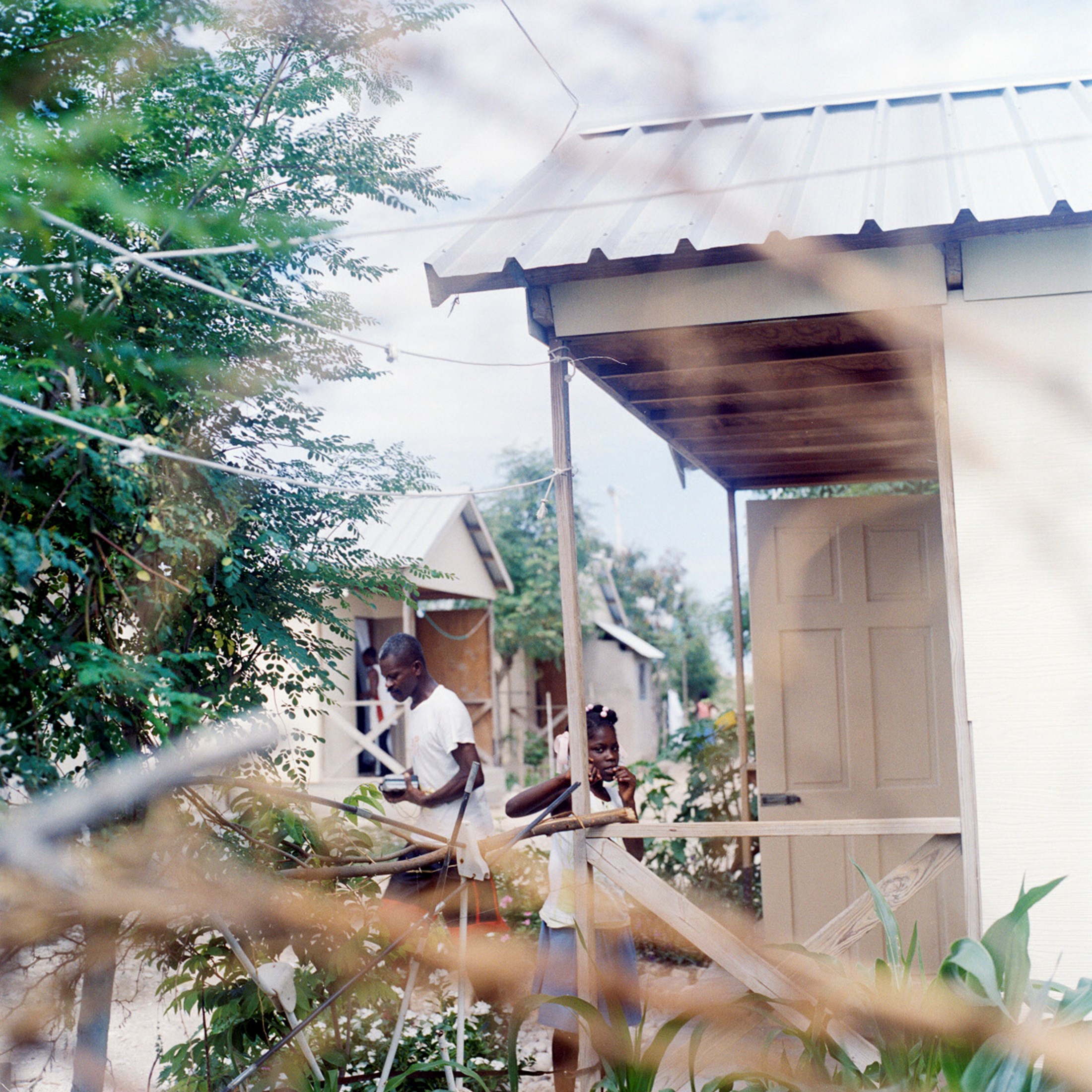
Our process of responding to a disaster tends to follow a similar pattern each time. We check with the local office to gauge the state of the airport, roads or seaport, and build an emergency action plan around that. In a natural disaster, if the United Nations requires it, DHL has a Disaster Response Team that can be deployed within 72 hours. It’s a global network of 500 trained volunteers who are dispatched to manage incoming supplies at airports, and to file daily reports that can be shared with multiple organisations.
In the event of a major disaster, the office transforms into a hive, with everybody coming and going. We can mobilise up to 300 tonnes of aid in a single day, with one flight able to carry 90 tonnes. Where conditions are so bad that affected communities can’t be reached by road, we use what we call speedballs: emergency supplies sorted into polypropylene bags that are bundled into helicopters and airdropped.
We’ve delivered aid to war zones, to earthquake-hit communities, Ebola zones and more. In Syria, we’ve been active in the country since the day war began in 2011. It’s high risk and we have to be on top of non-stop changes, particularly regarding border closures. Once in, you really are dealing with the unknown – we’ve heard stories of hijacking and bombing of cargo.
We were initially going in by air, but we couldn’t guarantee the safety of our planes, so we moved to road. Then we had to change that, as we were worried about hijackings. We then switched to ocean freight, via the Port of Latakia, but we are still restricted by approvals. There are some parts of the country that we simply can’t reach – Idlib, for example.
Getting aid into Yemen was just as difficult. We spent days back in 2015 trying to figure out who to speak to get access, but none of our usual channels could help. I began dealing directly with the coalition forces who controlled the airspace and they offered us a tiny time slot of two hours to land, unload and depart again. I managed to negotiate it up to four hours but when that first flight went in, everyone was glued to their phones, just hoping. We could only breathe when the plane flew out again.
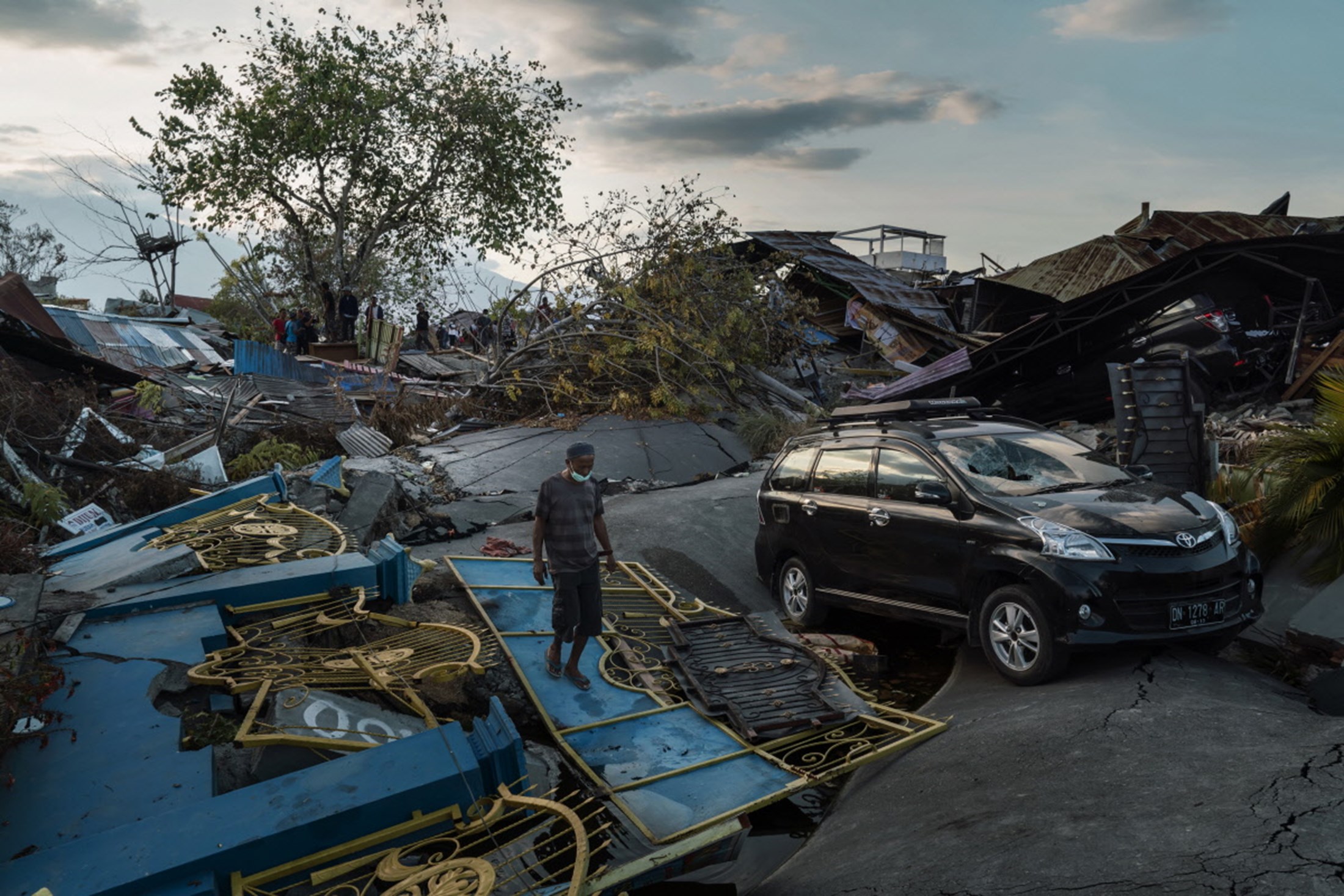
The Covid-19 pandemic has brought new challenges, and we’ve been in the thick of the response. Disasters usually affect one or two countries at a time, but the coronavirus is a global emergency, and an ongoing one. We’ve been operating at our highest level since February last year, with no slow-down in sight.
Many countries are now in the middle of a second wave of Covid-19, meaning there has been a surge in demand for personal protective equipment (PPE). We move it on our own flights from China or Europe into the Middle East, and from here we distribute to various destinations, mainly in Africa. We have a dedicated fleet of aircraft through our DHL Aviation service, but also rely on partnerships with global airlines to ensure we aren’t affected by any flight shortages.
As well as the pandemic, other emergencies remain ongoing. We still have malaria, NTDs, HIV, the conflicts in Syria and Yemen, Ebola in the DRC, and others, and we still need to deliver aid and medicines to these places. But due to Covid-19, we are hampered by border closures, customs delays, and an aviation industry in turmoil.
It’s the most challenging environment we’ve been in and it has completely changed humanitarian operations. We really took for granted how smoothly our shipments used to move across borders. Our job now is rarely just about moving things from A to B, it’s about creating solutions.
It used to be quite unusual to be a woman in this business. There were meetings when I’d be the only woman, or if I were walking through a warehouse people would assume I was lost. That isn’t the case now. There are more and more women joining the world of logistics and humanitarian aid.
I’m very conscious that we are the privileged ones, safe in an office. There are humanitarian workers out there in the field, working each day with the risk of violence and infection. Those are the guys on the ground feeding information back to us, seeing the people in need, and talking to them face-to-face every day. We’re the link that connects it all. – PA

